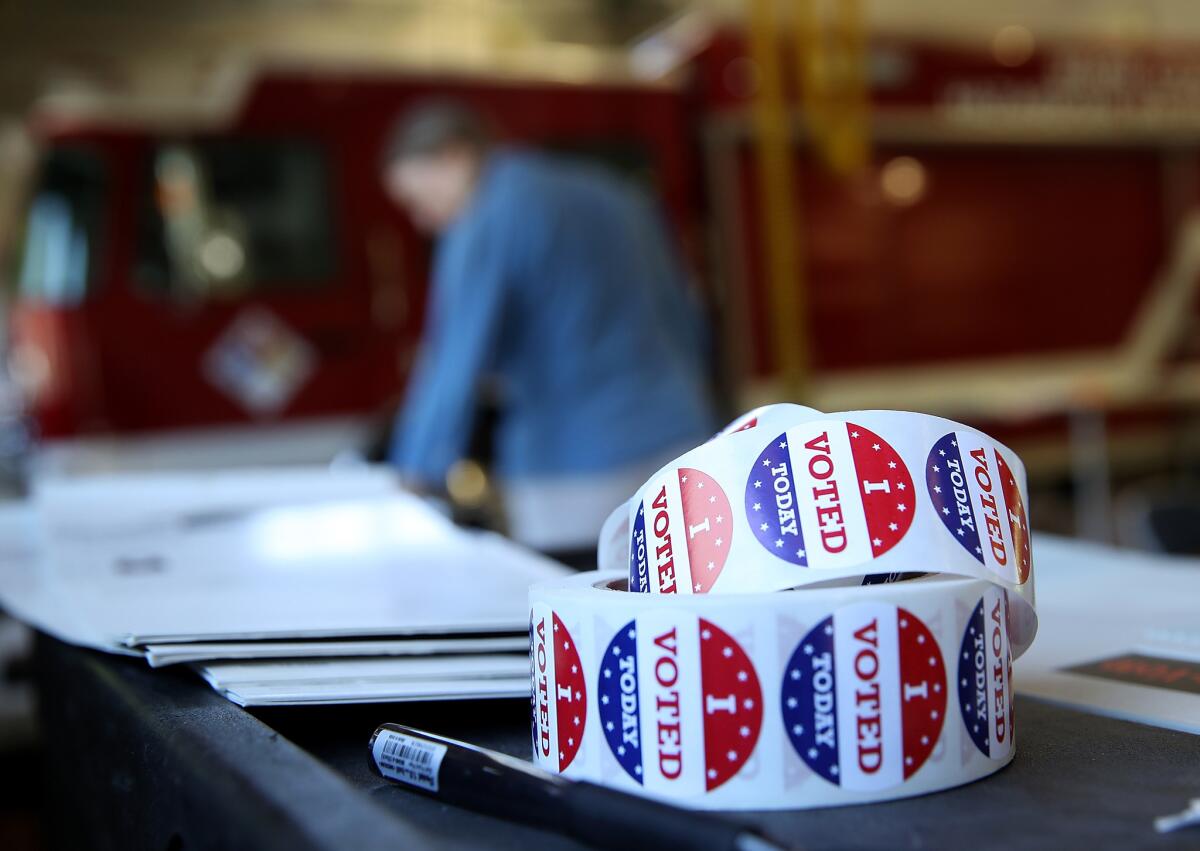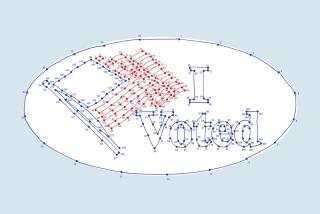California independents can cast ballots for Democrats — but not Trump — in March primary

- Share via
SACRAMENTO — California voters who are unaffiliated with a political party will be able to participate in the Democratic presidential primary next year, but they will be prohibited from casting ballots for President Trump or any possible Republican challenger, according to information released Monday by state elections officials.
Those rules are made by the individual political parties, not the state. And while the split decision by Democrats and Republicans isn’t new — the same conclusion was reached in elections past — it’s a reminder of the somewhat confusing rules that cover primaries in the nation’s largest voting state.
“As we enter the fifth election cycle under the ‘top-two primary’ system, California voters have become increasingly accustomed to voting for the candidates of their choice regardless of political party preference,” said Secretary of State Alex Padilla in a written statement. “The presidential primary, however, remains the exception.”
Because presidential primaries determine each officially recognized party’s national nominee, party leaders get to determine who is and isn’t eligible to participate. Primary elections for Congress and the Legislature, on the other hand, are subject to California’s top-two primary rules enacted nine years ago, allowing a voter to cast a ballot for any candidate. In those contests, the names of all candidates are printed on every primary ballot and only the two candidates receiving the most votes move on to the November election.
The state’s unique primary system has empowered the 6.2 million voters who are registered as having “no party preference,” currently the second largest group of California voters behind registered Democrats. Both major parties have criticized the top-two primary because it can mean two candidates from the same party can be the only choices come November.
Presidential contests, however, have changed very little through the years.
The state’s six officially recognized political parties — the Democratic Party, the Republican Party, the Libertarian Party, the Green Party, the Peace and Freedom Party and the American Independent Party — are not required to give permission for unaffiliated voters to cast ballots in their quadrennial presidential primaries.
On Monday, state officials said three parties — the Democratic Party, the Libertarian Party and the American Independent Party — have agreed to do so. The other three will only allow their party’s voters to participate in the March 3 primary.
“The California Democratic Party is the Party of inclusion,” said Rusty Hicks, the party’s chairman. “Unlike others, we will continue to make it easier — not harder — for Californians to ensure their voices are heard at the ballot box.”
Republicans insist that all voters, including those who decline to join a political party, can vote for their standard-bearer in November.
“It’s been our long-standing position that Republicans should pick the Republican nominee,” said Cynthia Bryant, executive director of the California Republican Party.
But even when they’ve been welcomed into the primary, the rules have been confusing for unaffiliated voters, who frequently refer to themselves as “independent” voters. To participate in a party’s presidential primary, they must specifically request a ballot with the names of party candidates, a step that some who are absentee voters didn’t know about in 2016.
News reports chronicled stories of “no party preference” voters who discovered at the last minute that their mailed ballot didn’t include presidential candidates, but the voter wanted to cast a ballot for either Hillary Clinton or Bernie Sanders.
If those voters were able to show up at a local elections office in 2016, they were able to exchange the ballot. If not, they were out of luck. That will be true, too, in March’s primary.
Other Californians experienced a different but equally vexing problem in the last presidential primary: they believed they were “independent” voters, but had mistakenly registered with the American Independent Party. An investigation by The Times in 2016 showed widespread confusion by the obscure, ultra-conservative party’s name. In those cases, the voter had no last-minute option because Democrats had only given permission to voters who were actually unaffiliated.
That quandary should be resolved under a law signed earlier this month by Gov. Gavin Newsom that will allow election day voter registration at all polling places and regional vote centers. That includes existing voters who want to change political party affiliation.
Local elections officials are already preparing a robust public awareness campaign, hoping to avoid both mistakes that prohibit voters from choosing a presidential primary candidate and last-minute decisions that could slow down the process of counting votes in March.
Gail Pellerin, the registrar of voters in Santa Cruz County, will send information cards to unaffiliated voters just after the holidays. “We’re asking them to decide in January,” she said.
More to Read
Sign up for Essential California
The most important California stories and recommendations in your inbox every morning.
You may occasionally receive promotional content from the Los Angeles Times.











